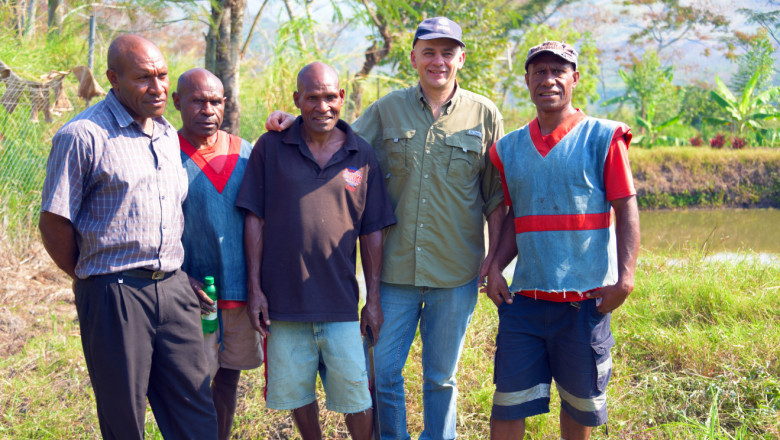
Jesmond Sammut, pictured center-right, in Papua New Guinea with members of the Bihute Fish for Prisons program. (Photo courtesy of Jesmond Sammut)

Jesmond Sammut, pictured center-right, in Papua New Guinea with members of the Bihute Fish for Prisons program. (Photo courtesy of Jesmond Sammut)
Audio story by Joshua Rosenstein
Nestled in the eastern suburbs of Sydney, Australia, Jesmond (Jes) Sammut lectures his students on topics in coastal resource management. Sammut is an associate professor at the University of New South Wales, and also leads the UNSW Aquaculture Research Group. Aquaculture, which is the farming of aquatic organisms, is seldom discussed by most people around the world, yet it can lead to enormous benefits.

Sammut’s research has taken him to Vietnam and Indonesia to study shrimp farming, India to train local veterinarian scientists, and the Philippines for fish farming. Yet, some of his most impactful work has occurred in Papua New Guinea, where he trained a research team that subsequently worked with the National Fisheries Authority of Papua New Guinea to improve tilapia production and fish farming practices.
According to Sammut, the work conducted by his team and partner groups has led to drops in crime, tribal war, and antisocial behavior, while also boosting self-esteem, cooperation, and financial and food security. His experiences have also come with challenges and lessons learned.
This podcast intends to introduce you to Jes Sammut and the power of his aquaculture research in Papua New Guinea.